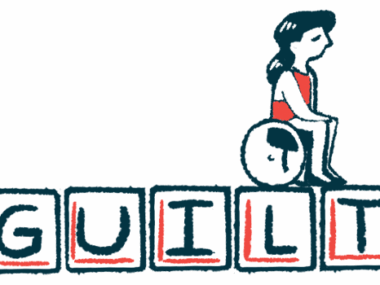Why asking for and accepting help is important for parents
We can't do everything on our own, especially with hemophilia in the picture
Written by |

Helping people brings me joy. As a hospice chaplain assisting families through their darkest hours, I am truly fulfilled. Outside of my work, my heart is full when I can make dinner, pick up groceries, or visit a friend. But asking for help is an entirely different thing.
During my pregnancy with my youngest son, Caeleb, who’s now 19, I faced many medical challenges. I was also caring for my oldest son, Julian, who was 10 at the time, as well as my 16-year-old cousin, who was living with us. I’d be admitted to the hospital for several days at a time, and my husband, Joe, would be left to keep the home fires burning. Joe was a music director at a church, and during one of my hospital stays, a choir member approached him.
“Joe, what days are best for us to bring meals to your family?” This woman had arranged for people to bring us meals while I was in the hospital. Joe immediately said that he was fine and that the church members didn’t need to bring us meals. She looked at Joe, with hands on her hips, and said, “Joe MacDonald, when I get to the pearly gates and Jesus asks me why I didn’t feed the MacDonald family, am I going to have to say that ‘they didn’t let me’?”
Without hesitation, Joe replied, “Tuesday and Thursday would be great.”
Asking for help isn’t easy. Too often, people view it as a sign of weakness or lack of capability, but the opposite is true.
It takes strength to ask for help.
Juggling daily life, parenting, and hemophilia
As parents, most of us hope to be a supermom or superdad. Our culture praises those who rush around with their children, juggling work, dinner, soccer, homework, and numerous other activities. But when your child has a bleeding disorder like hemophilia, the idea of being a super-parent begins to unravel.
Both of my sons have severe hemophilia A, and after the challenges we’ve faced, I understand the difficulty of asking for help.
When my sons were younger, I was so overwhelmed with learning how to access a port and help manage Caeleb’s pain that routine, daily tasks became insignificant. A trip to the emergency room took precedence over cleaning toilets or cooking dinner. Preparing for an infusion or spending time at the hospital became the focal point of the day. The everyday chaos of parenting was replaced with a chaos that felt deeper, scarier, and more isolating, even bringing grief and despair. And the desire to do it all on my own made the weight of hemophilia even heavier.
As parents, why do we pretend to have everything under control? Learning about and managing a bleeding disorder can be a full-time job, so enlisting help with daily tasks is imperative.
Our friends and family who are unfamiliar with hemophilia may often feel helpless. They won’t know how to identify a bleed or assist with an infusion, but they can help with other basic needs.
Leaving a meal at your doorstep, cleaning your house, or sitting in silence with you are acts of compassion and care that friends and family can offer. It may be the only way they can show their love and support, and allowing them to do so is as big a gift to them as it is to you. You’re letting them fulfill their heart’s desire to help.
So the next time you feel like doing it all yourself, remember that woman at church with her hands on her hips and her voice booming with the truth. And try to respond like my beloved husband:
“Tuesday and Thursday would be great.”
Note: Hemophilia News Today is strictly a news and information website about the disease. It does not provide medical advice, diagnosis, or treatment. This content is not intended to be a substitute for professional medical advice, diagnosis, or treatment. Always seek the advice of your physician or another qualified health provider with any questions you may have regarding a medical condition. Never disregard professional medical advice or delay in seeking it because of something you have read on this website. The opinions expressed in this column are not those of Hemophilia News Today or its parent company, Bionews, and are intended to spark discussion about issues pertaining to hemophilia.




Leave a comment
Fill in the required fields to post. Your email address will not be published.